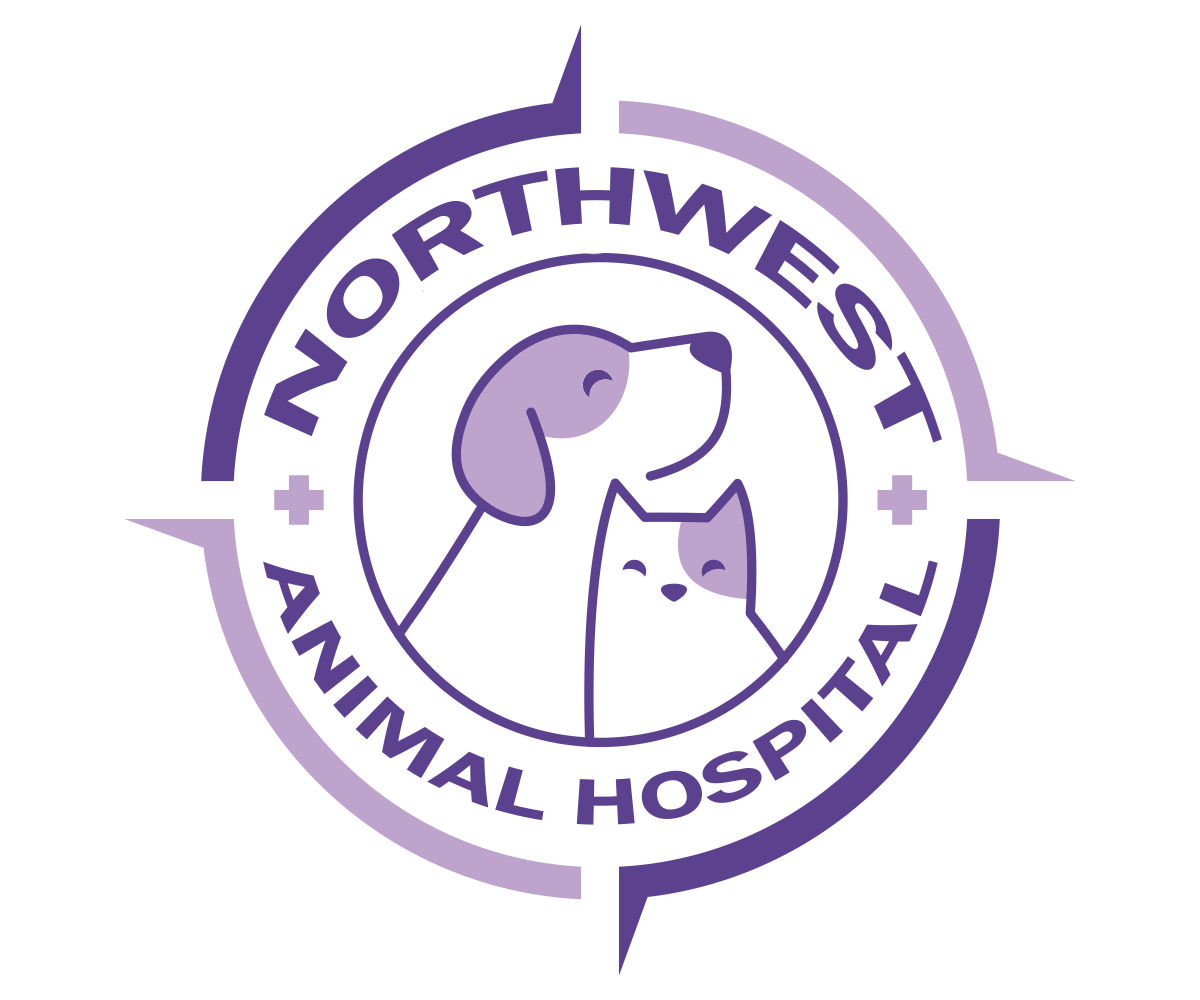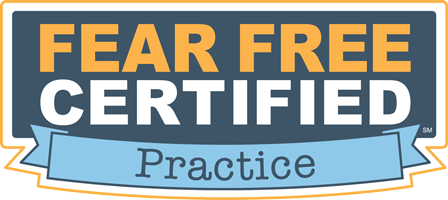Dog Vaccinations
Keeping your dog vaccinated is one of the most important and effective ways to protect their well-being at every life stage. Whether you are training a new puppy or enjoying life with a laid-back senior, staying up to date on their vaccines will be part of the foundation of your dog’s care.
We know every dog is unique, so we believe their care should be, too! We will create a personalized vaccination plan specifically for your dog based on their age, lifestyle, risk factors, and health conditions. At Northwest Animal Hospital, we are proud to partner with pet parents to keep their pets healthy and happy every step of the way.
Dog Life Stages
Your dog’s vaccine needs and requirements will change as they grow and enter into different life stages.
- Puppy (0– 1 year)
- Young Adult 1–2 years)
- Adult (3–6 years)
- Senior (7+ years)
Every stage of your dog’s life comes with different health considerations, and that includes which vaccines are most important and how often they should be given. At Northwest Animal Hospital, we evaluate your dog’s needs to determine which vaccines are essential for your particular dog. Core vaccines are recommended for all dogs to protect against common, serious diseases, while non-core vaccines are given based on lifestyle and risk factors.

Core and Non-Core Dog Vaccines
We follow guidelines from the American Animal Hospital Association (AAHA) when building your dog’s vaccine schedule.
Core Dog Vaccines
Core vaccines are recommended for all dogs and protect against common, contagious, and potentially fatal diseases.
- Rabies - Required by law across the U.S. to protect both dogs and humans against the rabies virus.
- DHPP - A combination vaccine that protects against:
- Distemper
- Adenovirus (hepatitis)
- Parvovirus
- Parainfluenza
- Leptospirosis - Protects dogs from this potentially severe bacterial infection that can affect dogs and humans.
Non-Core Dog Vaccines
Non-core vaccines are given based on lifestyle and risk, such as exposure to other dogs, travel, boarding, grooming, or wildlife.
- Bordetella (kennel cough) - Recommended for dogs that go to boarding facilities, daycare, grooming salons, or training classes.
- Lyme disease - Recommended for dogs who live in or travel to areas where ticks are common.
- Canine influenza - Similar to Bordetella vaccines, this is recommended for dogs that are around other dogs frequently, such as in social or group environments.
Our team will help you determine which vaccines are necessary based on your dog’s daily life and potential exposure to the illness.
Are dog vaccinations required by law?
In Ohio, rabies vaccination is required by law for all dogs. The rabies virus can be transmitted to humans from animals, so this vaccination is important for both four-legged and two-legged family members.
Dog Vaccine Schedule by Age
The general guidelines we follow for your dog’s vaccines depend on their age and lifestyle. The following is an overview of the vaccines typically recommended at each life stage to help protect your dog from preventable diseases.
Puppies (up to 1 year)
- Start core vaccines around 6–8 weeks of age
- Boosters every 3–4 weeks until about 16 weeks
- Includes vaccines for distemper, parvovirus, adenovirus, +/- leptospirosis
- Rabies vaccine around 12–16 weeks (as required by Ohio law)
Young Adults (1–2 years)
- Boosters for all core vaccines
- Non-core vaccines if risk factors apply (if your dog frequently boards, hikes, or visits dog parks, etc.)
Adults (3–6 years)
- Rabies booster per state law (1- or 3-year, depending on vaccine)
- Core vaccines are given every 1–3 years, depending on the previous schedule and risk
- Non-core vaccines updated as needed
Seniors (7+ years)
- Vaccines may be spaced out depending on overall health and lifestyle
- We assess immunity, risk of exposure, and chronic conditions to determine the safest plan for your dog.
Puppy Socialization Before Vaccinations
While your puppy doesn’t need to be strictly isolated, it’s important to be mindful about where and with whom they socialize before they’re fully vaccinated. We typically recommend avoiding dog parks, pet stores, or areas where animals or wildlife may gather. These viruses and bacteria can linger in urine, feces, and on shared surfaces, so it’s best to steer clear of these areas if possible.
If you are in a multipet household, you don’t have to keep your pup in a bubble. It’s usually safe to let your puppy interact with dogs you know to be healthy, up to date on their vaccines, and free of any symptoms of sickness like diarrhea or coughing.
Puppy Vaccines from a Breeder
Puppy vaccines should always be given by a veterinarian. Vaccines sold outside of veterinary clinics, like through feed stores or online, may not be properly temperature-regulated and this will alter their effectiveness and possibly the safety for your dog. Vaccines administered at our hospital are stored under strict conditions and are backed by manufacturer guarantees, so you can know that your puppy is truly protected.
What Is a Vaccine Reaction?
After your dog receives their vaccines, it is normal for the area where they received the vaccine to be slightly swollen or sore. If a reaction other than this occurs, it may be an allergic reaction to the vaccine, and your pet needs to be monitored. While most pets handle vaccines without any issues, it’s important to be aware of the signs, just in case.
Symptoms of a vaccine reaction in dogs:
- Facial swelling
- Difficulty breathing
- Vomiting or diarrhea
- Extreme lethargy
At Northwest Animal Hospital, we have protocols in place to manage vaccine reactions if they occur, and we take extra precautions when vaccinating pets that have experienced a reaction in the past. Keep in mind, these reactions are rare, and the benefits of vaccination far outweigh the risks.
Keeping Your Dog Protected One Vaccine at a Time
At Northwest Animal Hospital, we don’t believe in one-size-fits-all care. We’ll work with you to create a personalized vaccine schedule for your dog, taking into account their age, lifestyle, and risk factors, so you can feel confident they’re protected at every stage of life and your pet will receive the best care possible, every time
The AVMA is another excellent resource for pet vaccinations.
At Northwest Animal Hospital, your pet is our priority. If you have any questions, don't hesitate to call our team at (614) 451-4772, or you can email us at [email protected]. Our staff would love to talk with you!
Don't forget to follow us on social media: Facebook, Instagram.


